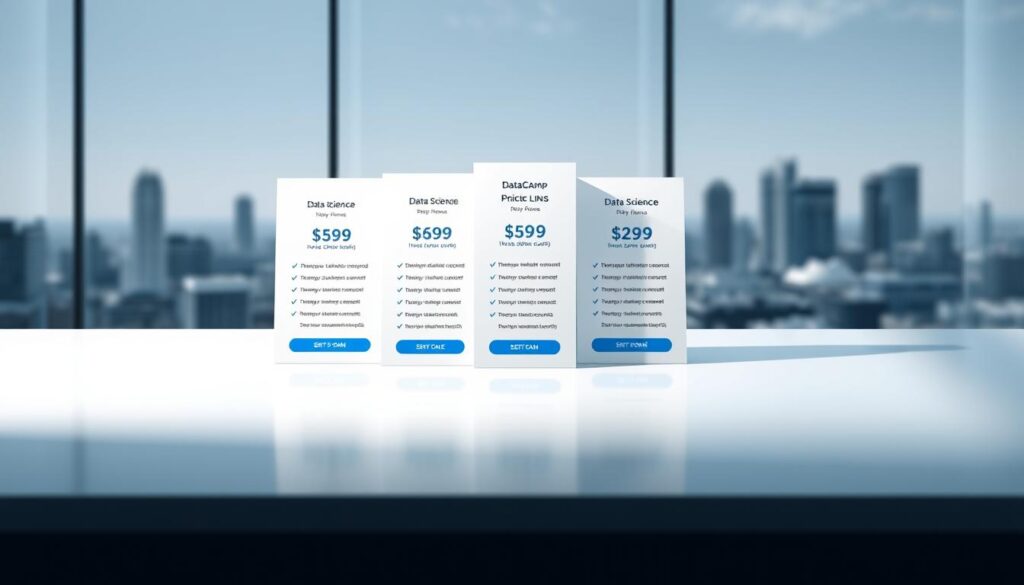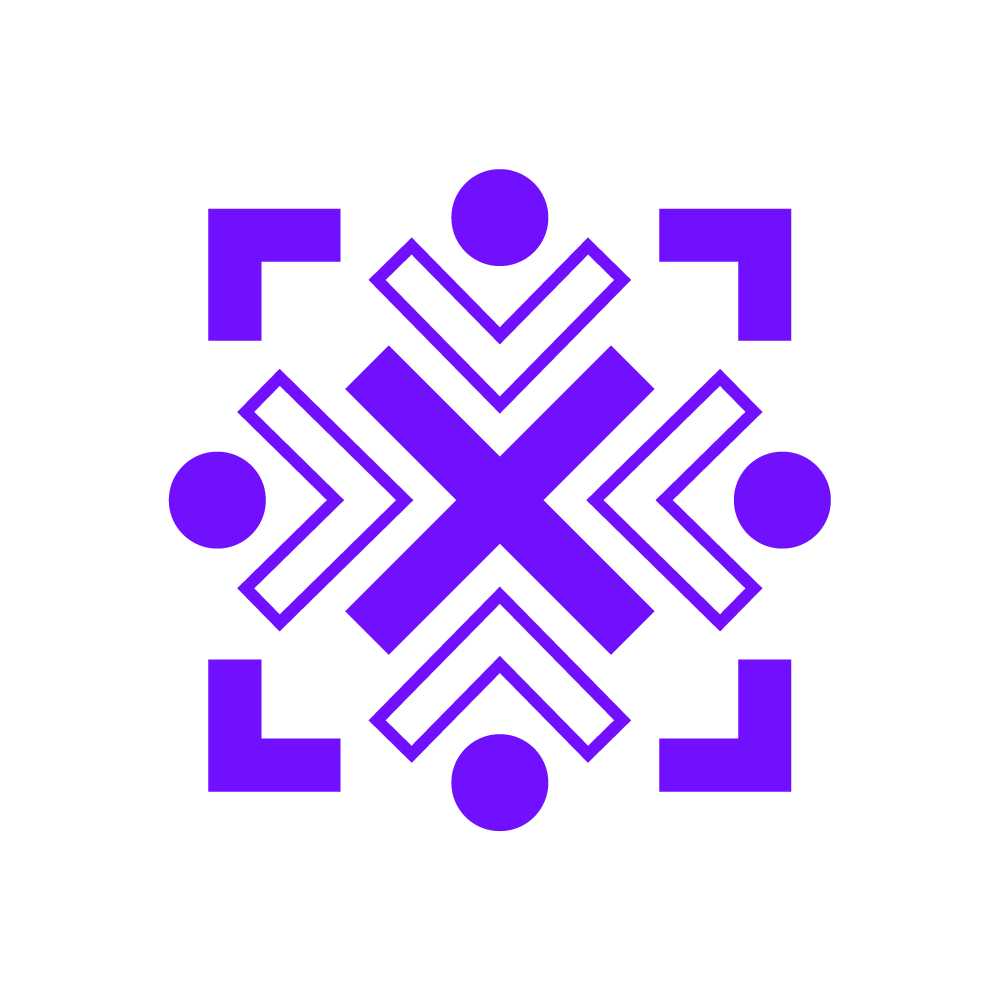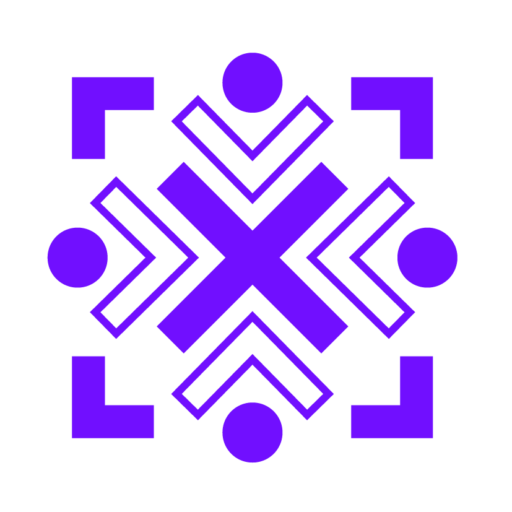Ever wondered how professionals master data science without spending years in school? The answer lies in structured, hands-on learning. With over 16 million learners worldwide, DataCamp offers a fast-track approach to gaining in-demand skills.
From Python and SQL to machine learning and AI, the platform delivers bite-sized courses designed for real-world application. Whether you’re starting your data analysis journey or upskilling, interactive lessons and certifications make learning engaging.
Free introductory chapters let you test the waters, while projects and ChatGPT integration help solidify your knowledge. Ready to turn curiosity into career-ready expertise?
Key Takeaways
- DataCamp serves 16M+ learners with practical courses.
- Master Python, R, SQL, and AI through interactive lessons.
- Free chapters and certifications provide immediate value.
- Real-world projects bridge the gap between learning and application.
- Flexible access via web or mobile keeps education on track.
What Is DataCamp?
Tech education has evolved—meet the platform changing how we learn. Founded as an interactive hub, it offers 400+ courses in programming languages like Python, R, and SQL. Bite-sized lessons blend theory with hands-on coding, making data analytics accessible.
Choose between skill tracks for career paths or individual courses to master fundamentals. Topics span database management, statistical analysis, and visualization. Each lesson includes video tutorials and code-along exercises to cement concepts.
The platform stands out with gamified challenges and XP rewards. Unlike traditional MOOCs, it emphasizes real-time practice over passive lectures. Partnerships with universities and corporations extend its reach.
Available in 180+ countries, courses support multiple languages. Recent updates added machine learning and AI specializations, keeping pace with industry demands.
Why Choose DataCamp for Data Science?
Mastering data science requires the right tools and approach—here’s why this platform delivers. With a 76% completion rate for skill tracks, it’s built for results, not just theory.
Comprehensive Course Library
Access 400+ courses across 14 career tracks, from data analysis to quantum computing. Edmund L., a user, credits bite-sized lessons for his progress: “The Python modules made coding intuitive.”
Hands-On, Interactive Learning
Submit 2M+ daily code exercises with instant feedback. Unlike passive video tutorials, projects simulate real-world scenarios, like cleaning big data sets or building dashboards.
AI and ChatGPT Integration
43% of exercises now use AI for debugging and personalized prompts. Learn machine learning faster with ChatGPT-generated explanations. The mobile app (4.7/5 stars) complements desktop experience.
Golddawg’s 70-hour milestone proves flexibility works. Whether mastering advanced data techniques or SQL basics, interactivity drives retention.
Key Features of DataCamp
Structured learning accelerates skill mastery—here’s how. The platform combines bite-sized lessons with hands-on projects to build career-ready expertise. Whether leveling up in analytics or cloud computing, every feature is designed for real-world impact.
Micro-Learning and Skill Tracks
Lessons average 5–15 minutes, perfect for busy schedules. Skill tracks bundle 4–6 courses with capstone projects, like AWS-integrated databases challenges. Gamified XP rewards keep motivation high.
Real-World Projects and Certifications
Fortune 500 case studies simulate workplace tasks. Earn certificates backed by a hiring network—82% of learners report promotions. One user rebuilt a sales visualization tool during training.
Mobile vs. Web Experience
The app offers offline mode but lacks 60% of web content. Golddawg’s 70-hour milestone highlights web advantages, like full tech stacks. Corporate SLAs guarantee uptime for team training.
DataCamp’s Course Offerings
Unlock the power of data with structured courses designed for real-world application. Whether you aim to learn Python or master machine learning, the curriculum blends theory with hands-on projects. Industry-specific tracks in healthcare and finance ensure relevance.

Python and R Programming
Python courses average 4.8/5 ratings, progressing from Pandas to PyTorch. Tackle big data analysis or automate workflows. R programming extends to genomic research, ideal for bioinformatics.
SQL and Database Fundamentals
Learn SQL through complex joins and window functions. Courses cover cloud computing integrations like AWS, preparing you for modern data analytics roles.
Machine Learning and AI
From feature engineering to model deployment, ML pipelines use real-world datasets. ChatGPT integration helps debug code, accelerating your machine learning journey.
Data Visualization (Power BI, Tableau)
Certifications in Power BI and Tableau boast a 94% pass rate. Build dashboards that transform raw big data into actionable insights.
Pros and Cons of DataCamp
Not all learning platforms are created equal—here’s what sets this one apart. From flexible free tiers to mobile limitations, understanding the trade-offs helps you decide if it aligns with your goals.
Why It Stands Out
The free tier includes 8 courses worth $300+, covering Python basics and data analysis. Edmund L., a student, used these to test the platform before upgrading with a discount.
Community features like forums and Discord offer peer support. Unlike passive MOOCs, interactive challenges build analyst skills through real-time feedback.
Where It Falls Short
The mobile app lacks 60% of web content, including project submissions. While great for coding drills, mastering database tools requires desktop access.
Pricing starts at $25/month per member for teams—higher than Coursera but with more hands-on tech practice. Certifications cost extra, though updates keep courses current.
DataCamp Pricing and Plans
Flexible pricing options make mastering data analytics accessible today. Whether you’re building career skills or leading a team, plans scale to your needs.

Basic ($15/month): Unlimited course access but excludes projects and certifications. Ideal for beginners testing the waters.
Premium ($29/month): Unlocks 100+ real-world projects and sharable certificates. BorisGrishenko praised its XP system for motivating consistent learning.
Teams ($25/user/month): Discounted annual rates (up to 45% off) with centralized billing. Non-profits and universities qualify for extra savings.
Certifications cost $39–$99 each, but Premium members get discounts. A 7-day refund policy covers unsatisfied users—rare in the e-learning landscape.
Payment methods include credit cards, PayPal, and invoicing for enterprises. Mobile access is limited, but web-based data drills keep skills sharp.
Start with free chapters or commit to an annual plan. Your journey in analytics shouldn’t wait.
Conclusion: Is DataCamp Worth It?
Deciding on the right learning platform can shape your career trajectory—here’s the verdict. With a 92% renewal rate and graduates reporting a 23% salary lift, the ROI speaks for itself.
Career changers benefit from bite-sized lessons, while upskillers master advanced data techniques through real projects. AI integration accelerates machine learning proficiency, though desktop access is ideal for full content.
Edmund L.’s success story underscores its impact: “I transitioned to a data science role in six months.” While university programs offer credits, this platform’s flexibility fits busy schedules.
Ready to start your journey? The landscape of tech education evolves fast—invest in skills that keep you ahead.
FAQ
What is DataCamp best for?
DataCamp specializes in data science, machine learning, and data analytics courses. It’s ideal for beginners and professionals looking to master Python, R, SQL, and data visualization tools like Power BI and Tableau.
Can I learn data analysis without prior experience?
Yes! DataCamp offers beginner-friendly courses, including Introduction to Python and SQL Fundamentals, designed to help you start your data analyst journey with no prior coding knowledge.
Does DataCamp offer certifications?
Yes. Completing skill tracks or career paths earns you certificates, which validate your data analyst skills and can boost your career prospects.
How does DataCamp compare to other data science platforms?
DataCamp stands out with interactive learning, real-world projects, and AI-powered tools. Unlike some platforms, it focuses on hands-on coding and micro-learning for faster skill development.
Is DataCamp good for advanced data analysis?
Absolutely. Courses like Machine Learning Fundamentals and Advanced Python for Data Science help you master big data, cloud computing, and artificial intelligence concepts.
Can I use DataCamp on mobile?
Yes, but the mobile experience has some limitations compared to the web. For full features like coding exercises and projects, the desktop version is recommended.
What’s the cost of a DataCamp subscription?
Plans start at .42/month (billed annually). A free trial lets you explore courses before committing.
How does DataCamp integrate AI into learning?
Features like ChatGPT-powered assistance and AI-driven exercises help explain concepts, debug code, and personalize your learning path.
Are DataCamp courses good for career growth?
Yes. Skills in Python, SQL, and data visualization are in high demand. Completing projects and certifications can enhance your tech career opportunities.



